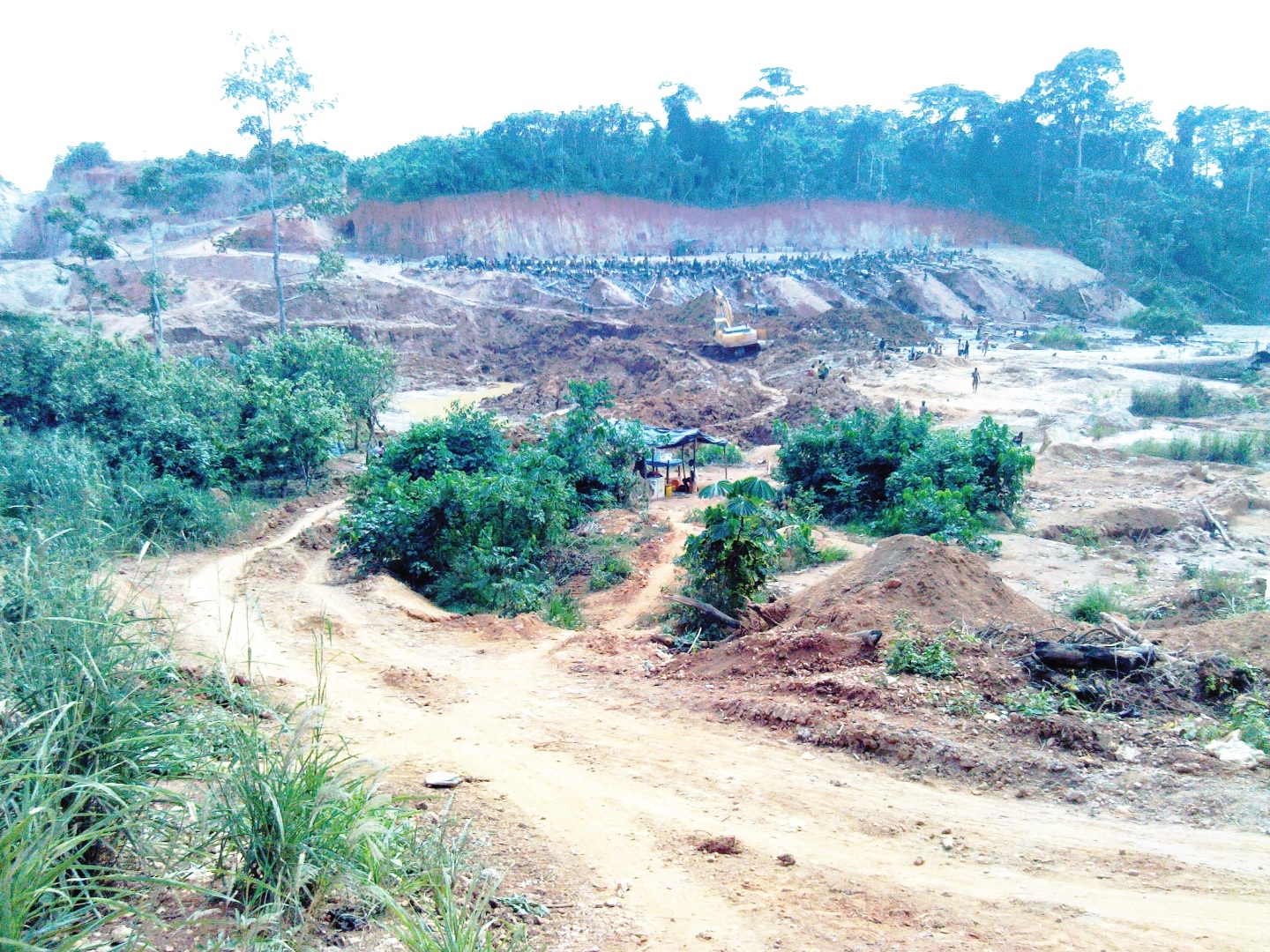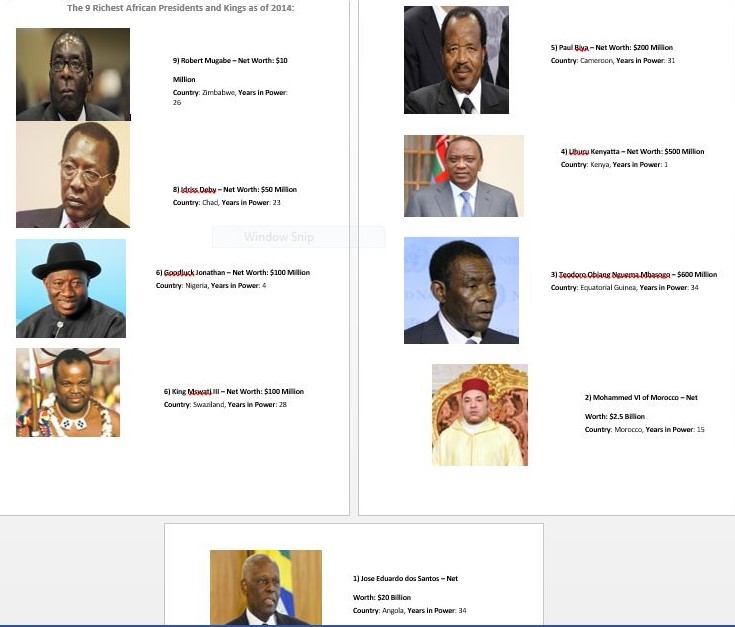
Illegal miners have invaded between 1.5 and 1.7 million hectares of cocoa lands, destroying large tracts of cocoa farms in the process — all in their quest to explore for gold, Ekow Essabra-Mensah writes.
Obviously, there are indications that cocoa growing regions in the country are under siege following activities of illegal miners, particularly in the Western Region.
This accounts for the severe poverty hitting cocoa farmers in the face, and the subsequent practice where the majority of these farmers exchange their cocoa farms as concessions to illegal gold miners for cash.
This development has come about because indigenes in these communities are gradually losing interest in farming as they see the returns on the mining activity as more attractive and far rewarding.
The practice, which could spell doom for the country if not immediately halted, is common in some parts of Western Region where illegal mining has become the order of the day.
Available statistics indicate that every year the country experiences a reduction of about 100,000 tonnes in production of cocoa, with global reduction trends expected to hit about one million.
Last year, Ghana’s cocoa production declined from one million tonnes in the previous year to 800,000 tonnes, while the Ghana Cocoa Board (COCOBOD) this year has projected a production target of 830,000 metric tonnes which was later revised upward to 850,000 tonnes.
A field trip to some mining and cocoa growing communities such as Bogoso, Prestea, Tarkwa, all in the Western Region, have revealed how the activities of the illegal small-scale gold miners are impacting negatively on cocoa farms, as the indigenes are abandoning their crop farms in search of the metal with impunity.
With the several mining companies including Golden Star Bogoso/Prestea Limited (GSBPL), Gold Fields Limited and Golden Star (Wassa) Limited in the area being the largest employers, it is feared that if the fast-spreading illegal mining is not brought to a halt the companies’ continued existence will be threatened — with grave consequences for people in the communities.
Spread all over the communities are open pits besieged by unskilled youth confidently digging for gold to sell to prospective buyers without caring about the dangers being created for themselves, the inhabitants, and the environment as a result of this unregulated practice.
A number of these open pits are taking over some cocoa farms, with farmers seriously neglecting their cocoa farming activities for illegal mining.
The Managing Director of Solidaridad West Africa, Isaac Gyamfi, called for concerted efforts to tackle the threat posed to the nation’s cocoa production by illegal gold mining.
He said the danger is real and must never be underestimated, adding that decisive action must be taken to deal with it. Solidaridad is an international non-governmental organisation (NGO) engaged in the training of farmer groups in six countries of the sub-region, to increase agriculture production.
Mr. Gyamfi said the situation where cocoa trees are felled to make way for digging the precious mineral will undoubtedly hurt production levels. The nation will pay the cost for disturbing the vegetation, he said.
According to him, apart from forcing farmers to sell their farms because of high deposit of mineral resources, some of the miners forcibly entered the land to undertake surface mining without consent from the farmers.
The situation, he said, requires a holistic approach for redress — adding that as a result of rampant and haphazard activities, most of the farmers are losing their lands.
He said farming activities have been reduced to zero in some cocoa growing areas, because the entire nutrients that feed the trees have been destroyed, therefore rendering such areas unfertile for farming.
He said the situation has compounded the reluctance of indigenous youth who are in search of alternative livelihood activities at the expense of inheriting cocoa cultivation — the major traditional economic activity in the Tarkwa and Prestea areas part of the region to help neutralise the aging and fast-dwindling workforce.
Sale of cocoa farms
The farmers have little option because movement of heavy equipment to mining sites causes considerable damage to their crops before chiefs and landowners prevail on them to negotiate the sale.
Some of the farmers in the area expressed deep worry about the turn of events, and warned that if left unchecked it could have a devastating impact on the country’s cocoa production levels.
Averagely, Ghana annually earns about US$2billion from cocoa. According to the International Cocoa Organisation’s forecast, Ghana — the world’s second-largest producer — could produce up to 900,000 tonnes of cocoa beans in the upcoming 2014/2015 crop season.
But challenges including lack of a substantial labour force and activities of illegal mining could negatively affect productivity rates at the various cocoa farms, thereby undermining the target.
Chamber of Mines’ collaboration with National Security Agencies
Interactions with officials of the Chamber of Mines revealed that registered members received tremendous assistance from the National Security, Ghana Army, Regional and District Security Committees in protecting assets at their mines.
“In periods of distress, these agencies have not failed to respond to the call of our member-companies and we are grateful for their cooperation. In return for their assistance, members support the various security agencies with logistics,” the Chamber said.
In 2012, the Chamber donated a pick-up vehicle to the Ghana Armed Forces to enhance their operations in the fight against illegal miners.
The First Vice President of the Chamber, Kwame Addo-Kufour, observed that illegal mining is a threat not only to government and the Chamber of Mines but everyone in the country.
He called for a collaborative effort from all stakeholders to arrest illegal miners.
Stakeholders have urged government security entities, such as the Bureau of National Investigations (BNI) and the Ghana Police Service, to intensify their protection and monitoring mechanisms to minimise the impact of illegal small-scale mining operations and the activities of the foreign nationals on the country’s mineral reserves.
President John Dramani Mahama inaugurated an Inter-Ministerial Task Force to flush out Ghanaians and foreigners engaged in illegal mining in the country.
The five-member task force was mandated to work in a coordinated manner with the military and the police to arrest and prosecute Ghanaians and foreigners engaged in illegal mining.
The task force is mandated to ensure that laws on small-scale mining are fully enforced and seize all equipment used by those who fail to comply with new directives on obtaining or renewing their licences.
It is also empowered to arrest and prosecute anybody, both Ghanaians and foreigners, involved in illegal small-scale mining and deport all foreigners involved in small-scale mining.
The Minerals Commission in 2012 spearheaded amendment of the existing small-scale mining laws to impose stiffer punishment on any individual that engages in illegal mining.
Presently, the law stipulates that anyone who engages in illegal small-scale mining be fined 14,000 penalty units. A unit is valued at GH¢12. “Efforts will be made to seek an amendment of the law to enhance the level of punishment.
“We think that insufficient sanctions in the law covering illegal mining is part of the problem; we are proposing that illegal mining should be made an offence, and that the punishment should not be a fine but offenders must be made to serve a jail-term.
“We want the equipment used by the illegal miners to be confiscated to the state,” former Chief Executive Officer of the Minerals Commission, Mr. Ben Aryee, disclosed to the Business and Financial Times in Accra.
So far, Chinese, Indians, Russians, Spaniards, Burkinabes and other West African nationals have been found involved in the illegal mining business.
“Some of our chiefs go to the extent of taking as low as GH¢20 before illegally awarding lands to these foreign illegal miners operating in their areas.”
There have been various calls by civil society organisations and the general public for a common platform to collaborate and develop prudent ways of developing possible linkages between mining and farming to ensure needed growth and development.
Undeniably, mining activities have most often led to the degradation of lands. The possibility of rehabilitation for agricultural purposes afterward is a refreshing note and needs to be considered greatly.
But in a perfect partnership where agriculture thrives in the environs of mining, farmers are encouraged to provide food and cash crops for the consumption and growth of teeming populations and communities in mining areas.
On the other hand, when one thinks of the link between mining and agriculture, what immediately comes to mind are the negative impacts that unbridled mining activities have on land, water, agriculture and people’s livelihoods.
Experience has indeed often proved this right: where these two sectors co-exist, they look daggers at each other and are engaged in constant battles over the use of common resources and over the detrimental effects that mining activities have on the communities living around them.
Identifying and addressing the missing links between a prosperous extractive sector and other productive sectors, notably agriculture, must be seen as the nation’s top priority in the government economic growth agenda.
Ghana, just like any other African country, is challenged with similar sectorial dynamics and the effects are creating a negative dimension on the country’s economic growth.
Strategies for promoting mining linkages
Mining companies can contribute to the development of local communities, perhaps, by moving a step beyond traditional corporate social responsibility toward corporate economic responsibility activities.
Companies can play a constructive role by providing complementary support to local communities in developing productive economic activities.
These can take two main forms: notably, supporting the development of linkages within the extractive sector by providing services to the sector or by developing upstream and downstream industries to transform raw materials into higher value-added activities.
Secondly, there should be a drive to promote linkages outside the extractive sector into the field of agriculture, given its importance in many resource-rich countries.
The need to set up a strong industrial base and hence foster industrial linkages is self-evident and indisputable.
Currently, agriculture — which is the mainstay of the country’s economy — is estimated to contribute 30% of gross domestic product on average and 70% of labour force employment in Ghana’s economic development.
However, rural subsistence farming still makes upthe bulk of today’s agricultural production: 85% of farmers grow on less than two hectares and employ 65% of the total agricultural labour force.
Extractive resources are arguably becoming politically sensitive: they are known to generate rent-seeking behaviour, which in turn creates, structures and entertains incentives for all those involved in the business.
They have had a bearing on the mismanagement of resources and have often shaped governments’ relationship with citizens, in essence through tax-accountability.
Governments therefore have a strong interest in making sure that policies in both sectors are designed in such a way that they generate positive outcomes and complement rather than antagonise each other.
This way, benefits from extractive resources will trickle down to the rest of the economy and act as a catalyst for broader economic transformation.
Governments, acting together with mining companies, should use the current windfall gains from the extractive sector to compensate and lift the agricultural sector to a higher level of development, notably by using financial resources from the extractive sector to incentivise agriculture projects.
Extractive companies themselves can also play a lead role in supporting agricultural economic activities in areas where they operate. The purpose is not to turn miners into farmers, but rather to encourage and support local farmers to develop more productive activities beyond their subsistence activities.
This can be a way to reduce risks of potential unrest and therefore to maintain their social licence to operate in regions where agriculture is indeed a key sector, but where farmers struggle to provide for their own subsistence.
By: Ekow Essabra-Mensah| thebftonline.com
With support from: Media Foundation for West Africa and Star Ghana.



